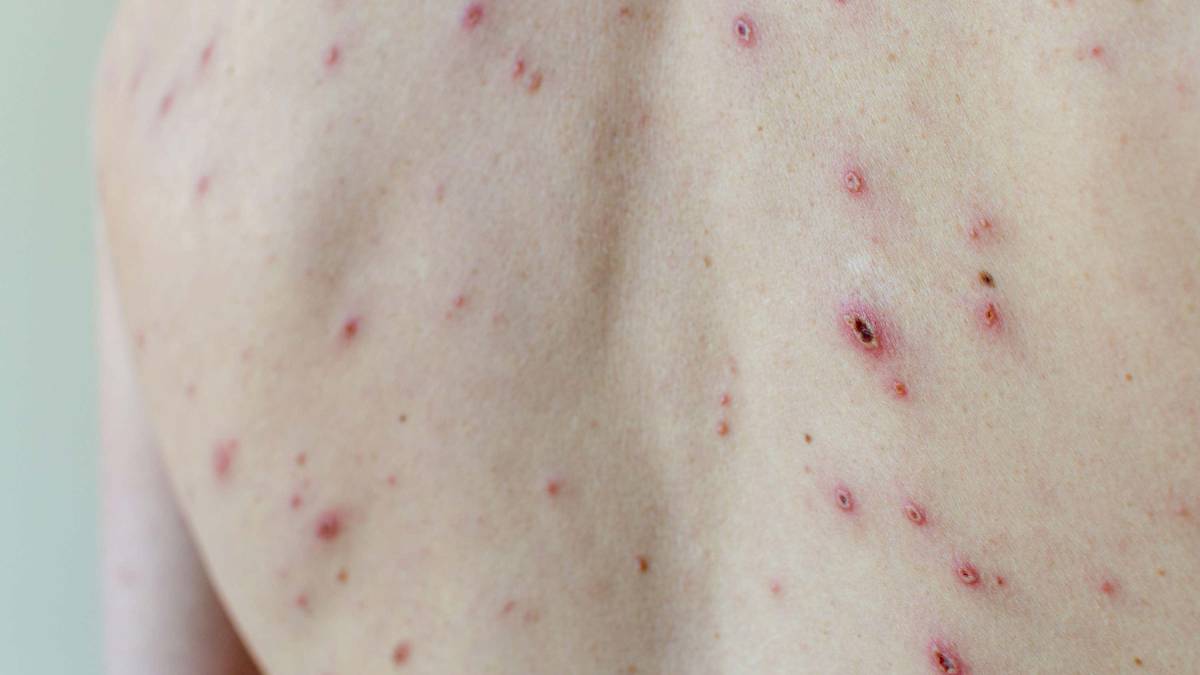Although chickenpox is usually a childhood illness, it can strike adults, too – as George Ezra has discovered.
The singer, 28, has told fans he’s “gutted” at having to cancel a string of concerts after catching chickenpox, which he didn’t have as a child.
Doctors say the illness tends to be more serious for adults, with potential complications including sepsis, pneumonia and encephalitis (inflammation of the brain).
Ezra shared a video of the chickenpox spots on his face and neck with fans on Twitter, saying: “As you can see, I have got chickenpox, which I never had as a kid – and it is miserable.
“It is all the fatigue and fever of the virus, but you also want to scratch your skin all the time.”
GP Dr Paul Ettlinger of the London General Practice (thelondongeneralpractice.com) says “most people get chickenpox as children, and to get it again as an adult would be very rare as you have antibodies against it”.
You’re more likely to catch it if you didn’t as a child, “although there is a vaccination for chickenpox”, Dr Ettlinger adds.
Read: Waging war on shingles
View this post on Instagram
The chickenpox vaccination is recommended for those in close contact with people who have a weakened immune system, or are at risk of serious illness if they catch chickenpox. If you can’t get it on medicare, it is available to pay for privately.
“If you get chickenpox as an adult, it’s quite possible you’d have it much worse than a child,” warns Dr Ettlinger. “You have to think if someone’s immunocompromised or pregnant – a quarter of all deaths from chickenpox occur in adults, as there can be many more complications.”
Read: Monkeypox has been declared a global emergency
An itchy, spotty rash anywhere on the body, including inside the mouth and around the genitals, is the main symptom of chickenpox, which has three main stages in both children and adults.
Stage 1
Small spots appear, and they might be painful. They may spread or stay in a small area, and can be red, pink, dark or skin-coloured.
Stage 2
The spots fill with fluid and become blistered and very itchy.
Stage 3
The blisters scab over.

During the illness, people might also ache and have a high temperature, lose their appetite and generally feel ill. Adults will usually have more spots than children, too.
As chickenpox is very contagious, it’s recommended that adults stay off work until all their spots have scabbed over – usually taking about five days after they first appear. In the meantime, drink plenty of fluids, take paracetamol, and try to not scratch the spots, as they could leave scars. Try using cooling creams or gels, or speak to a pharmacist about taking antihistamines to help the itching. You could also bathe in cool water and pat the skin dry – but be careful not to rub it.
Read: Older Australians underestimating shingles risk
People with chickenpox are warned not to use ibuprofen unless told to by a doctor, as it may cause serious skin infections – and don’t go near newborn babies, pregnant women or people with a weakened immune system, as chickenpox can be dangerous for them.
Speak to a GP if you’re not sure whether it’s chickenpox or not.
Did you have chickenpox as a child? Have you been vaccinated? Let us know in the comments section below.
– With PA

